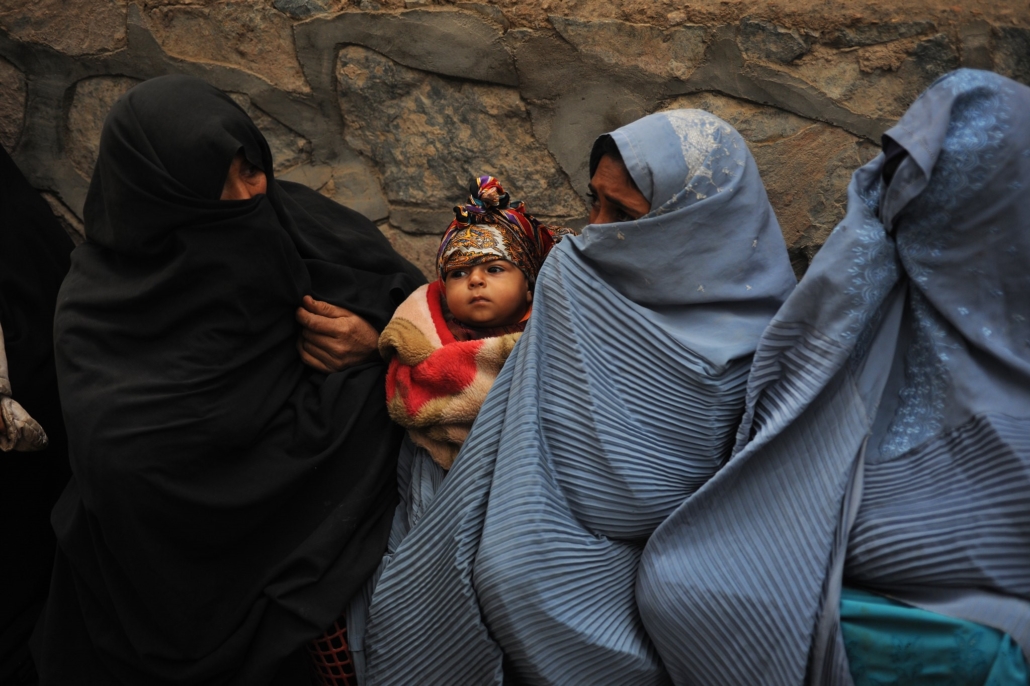How the Cold Harms Those in Poverty Globally

It may be easy to guess that during the colder months, those in poverty have a much more difficult time surviving than in warmer times. All around the world, people are struggling to stay warm – many in poverty must decide whether it is more important to have “heat or eat.” One cannot underestimate the reality of how the cold harms those in poverty globally.
Why the Cold is So Difficult for Those in Poverty
For many, cold weather signifies the dreaded winter season. According to the World Health Organization (WHO), families who are poor are four to five times more likely to live in cold homes and more than 30% of houses that are lower-income cannot keep their houses warm globally. Especially during the pandemic, families who have lost jobs are struggling now more than ever to keep their households at a decent temperature. Fuel poverty was a term that first emerged after the 1973 oil crisis to mean a period marked by increased prices in fuel which disproportionately affects low-income families. In essence, it is the inability to afford heating for one’s house at a reasonable cost.
Fuel poverty becomes all the more alarming when one considers the ramifications of living in cold homes during the winter. It is unimaginably uncomfortable and the Institute of Health Equity also reports that cold homes lead to higher mortality and morbidity rates. Lancet Planetary Health found that five million people die a year simply from the inability to adjust to temperature changes. Colder temperatures have links to more deaths of those in poverty and the stress of not being able to afford fuel can come in the form of both physical and mental illnesses. Those in poverty sometimes cannot afford the extra expense of fuel and heating for their homes. If they do, the population must sacrifice other aspects of their spending, such as basic nutrition. Thus, it is clear that the cold harms those in poverty much more than the average-income family.
Examples of the Effects of the Cold in Lebanon
Several regions around the world are struggling because of cold, winter weather. Studies have not shown that colder nations are more subject to poverty. However, more people are struggling to pay fuel costs as a result of rising costs due to the pandemic and inflation. Thus, during times of economic peril, low-income families struggle immensely in the cold. Most recently, Storm Hiba has left Lebanese citizens and Syrian refugees in desperate circumstances.
Lebanon’s recent currency crisis has left many families in poverty, thus unable to afford the resources necessary to protect against the cold. Many are burning old clothes and plastic goods to keep warm, while others are simply relying on blankets. Since 90% of the Syrian refugees who live in Lebanon are in poverty, it is clear that the cold is disproportionately targeting them. Costs of wood are five times the minimum wage, while costs of diesel are 10 times what they were in 2019. Thus, those in poverty cannot afford to stay warm.
How Cold Harms Those in Poverty in Kazakhstan and Other Parts of Europe
Several other countries are victims of the cold weather’s effects on those in poverty. Kazakhstan, one of the coldest nations in the world, is deeply reliant on coal for heating. According to a study by Nazarbayez University, 28% of families in Kazakhstan have to spend more than 10% of their income simply on fuel for heating in the winter. This is a major problem for families who are in poverty, especially as energy prices rise.
According to the United Nations Office for the Coordination of Humanitarian Affairs, 6.9 million children have experienced displacement from their homes are at high risk for severe winter weather. The children come from numerous countries, such as Ukraine and Bosnia and Herzegovina. Already, they are trying to keep warm in plastic containers and deaths have occurred as well. Even wealthier nations experience severe cold weather plights due to fuel poverty. National Energy Action found that 9,700 people die in the U.K. from living in cold homes.
Save the Children and the Community Action on Fuel Poverty (CAFP)
Many organizations are trying to help victims of the cold. Save the Children is a U.K.-based organization that seeks to provide aid to children in poverty globally. The organization has continuously been searching for better accommodations for children in severe temperatures and has provided blankets, hygiene baskets and warm clothing to those in desperate need. The Community Action on Fuel Poverty (CAFP) is an organization that seeks to spread awareness of poverty through outreach to everyday people. It hosts workshops and sessions, training and energy-efficient campaigns to promote knowledge about the fuel poverty crisis in different communities in England specifically.
Learning about different benefits to lower the cost of fuel prices and information on legislation affecting fuel costs are what work the CAFP promotes. Also, people can call upon local and international governments to increase awareness of thermal discomfort, especially for poor families during the lockdown. Governments need to make long-term plans for sourcing heat for all families during the winter.
The European Union’s Plans to Address Fuel Poverty
The European Union has developed a program to address fuel poverty, recognizing the budget to prevent fuel poverty has decreased greatly. Its plan “Energy Efficiency in Household Buildings” offers incentives to citizens who meet income criteria to maintain energy-efficient heating and cooling. The “Better Energy Warmer Homes” plan provides energy efficiency measures to low-income households specifically. Similar programs should begin in nations with fuel poverty crises currently as there is a lack of similar government initiatives in countries ranging from Lebanon to Kazakhstan.
While the cold harms those in poverty, there are ways in which poor families can find relief and comfort. Calling on governments to do more and donating to organizations similar to Save the Children can greatly benefit those in the cold.
– Rachel Reardon
Photo: Flickr
